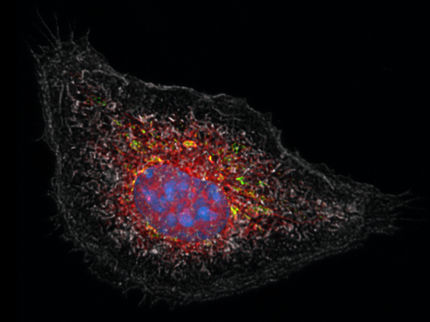Scientists show commonly prescribed painkiller slows cancer growth
Advertisement
Scientists from the Florida campus of The Scripps Research Institute (TSRI) have found that one of the most widely prescribed pain and anti-inflammation drugs slows the growth rate of a specific kind of cancer in animal models and suggests the medication could have the same effect on other types of tumors.
The new study focused on the effects of celecoxib (Pfizer's Celebrex®).
Celebrex® targets an enzyme called "cyclooxygenase-2" (COX-2), which is linked to pain and inflammation. This enzyme is also critical in the creation of prostaglandins, compounds that act like hormones and play a role in promoting tumor growth. COX-2 expression is typically low in normal tissue, but high in multiple types of cancers.
"We were actually interested in determining what a particular signaling pathway does in cancer," said TSRI Associate Professor Joseph Kissil, who led the study. "In the process, we found that it activates genes that promote survival of tumor cells and that they do so by turning on enzymes involved in inflammation, including COX2, which anti-inflammatory drugs like Celebrex® inhibit."
The researchers went on to conduct animal studies tracking the effects of celecoxib on the growth of cancer cells from a tumor type known as neurofibromatosis type II (NF2). In humans, NF2 is a relatively rare inherited form of cancer caused by mutations in the anti-tumor gene NF2, which leads to benign tumors of the auditory nerve.
Animals received a daily dose of the drug, and tumor growth was followed by imaging. Analysis of the results showed a significantly slower tumor growth rate in celecoxib-treated models than in controls.
Using various approaches, the new study also showed that a signaling cascade known as the Hippo-YAP pathway is involved in these results and that the protein YAP is required for the proliferation and survival of NF2 cells and tumor formation.
"Our study shows that COX2 inhibitors do have an effect on the tumor cells," said TSRI Research Associate William Guerrant, the study's first author. "They also have an impact on inflammatory responses that play a role in tumor growth. It's possible that in other cancers these effects might actually be stronger because of the drug's impact on inflammation."




























































